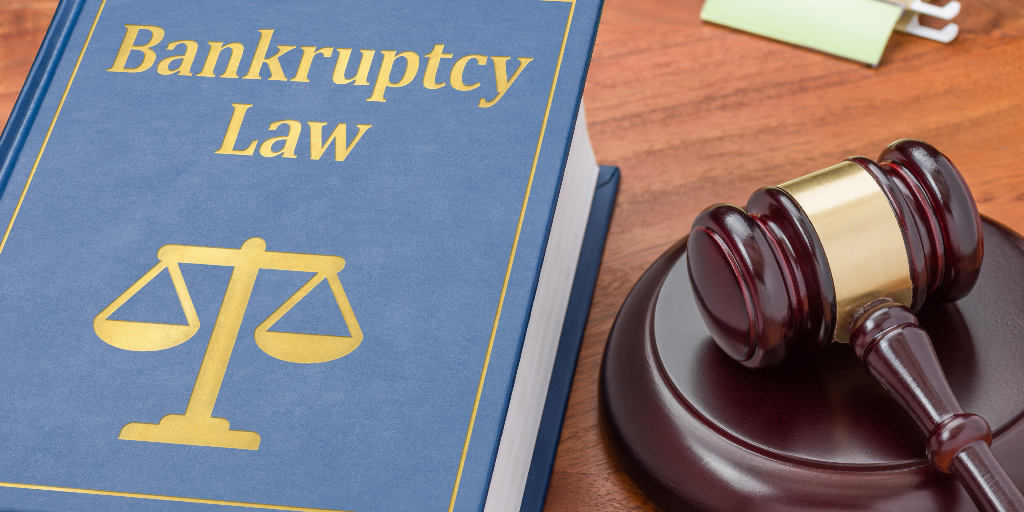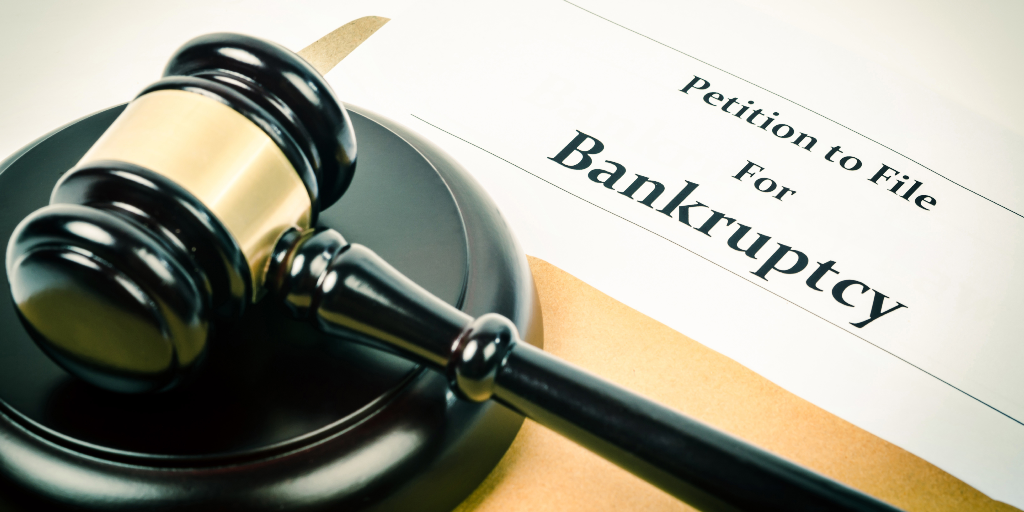What is Bankruptcy and How Does It Work?

- Bankruptcy is a legal process that can relieve people struggling to repay their debts.
- The most common types of bankruptcy filings for individuals are Chapter 7 and Chapter 13. However, Chapter 11 is the most common for corporations and other entities.
- Depending on the type of bankruptcy you declare, the impact on your credit score could last anywhere between 7 and 10 years.
What is Bankruptcy?
When a person or business cannot pay back their debts or obligations, they file for bankruptcy. A bankruptcy filing stops wage garnishment, lawsuits, and collection calls. The process is complex, and it is recommended that you should hire a lawyer. You should start seeing some financial improvements six months after filing. Some debts, such as student loans, recent taxes, and child support, typically cannot be discharged in bankruptcy.
Bankruptcy is a legal process that can relieve people struggling to repay their debts by liquidating assets. Depending on the type of bankruptcy filed, consumers may be able to discharge some unsecured debt or enter into a repayment plan with better payment terms.
The bankruptcy process begins with a petition filed either by the debtor, the most common, or by creditors, which is less common. Next, the debtor's assets are measured and evaluated, and some of the assets may be used to repay a portion of the outstanding debt.
Recommended Read: The Starter Guide to Pay Back Your Student Loan Debt

Most Common Types of Bankruptcy
Chapter 7 and chapter 13 are the most common types of bankruptcy filings for individuals, whereas chapter 11 is the most common among businesses. Therefore, it is important to know which type you will be filing.
Chapter 7
Chapter 7 bankruptcy is the most popular to file. Its quick process helps to erase many types of excessive debt. However, through this process, you may be required to turn over any expensive assets, such as cars or jewelry, to the courts to satisfy your financial obligations.
Most unsecured debts, or debts without collateral, such as credit card debt, personal loans, and medical bills, are discharged in Chapter 7 bankruptcy. However, filing chapter 7 bankruptcy will negatively impact your credit score for up to 10 years.
You must pass a means test to be eligible for chapter 7 bankruptcy. Whether you have enough disposable income to pay off your debts depends on your income, expenses, and family size. Most of those who take the means test pass it, even though it was created to limit the number of debtors who can have their debts discharged through a Chapter 7 bankruptcy.
People who are not eligible for Chapter 7 bankruptcy or want to keep certain assets, such as their home or expensive car, can restructure their debts and pay them off through Chapter 13 bankruptcy.
Chapter 13
Under the protection of a federal court, Chapter 13 bankruptcy enables you to restructure massive debts with a three to five-year repayment schedule.
Because you need a steady income to qualify, this chapter is often called "wage earners" bankruptcy. The objective is to pay off some debts and catch up on secured loans or loans with collateral like a house or car.
To be eligible to file for chapter 13 bankruptcy, you must have the following:
- Be employed
- Your secured and unsecured debt can be, at most, $2,750,000.
- Your taxes must be current.
- You cannot have recently filed for Chapter 7 or Chapter 13 bankruptcy within the last two years.
- You cannot have filed a Chapter 7 or Chapter 13 bankruptcy petition within the previous 180 days that was denied for failing to appear in court or follow a court order, among other extenuating circumstances.
Chapter 11
Chapter 11 bankruptcy is used for businesses and corporations wanting to reorganize their finances. This type of bankruptcy is best for companies that want to continue operating. To qualify, you must not have submitted a bankruptcy petition that was rejected within the last 180 days.
Recommended Read: Crypto Lender Celsius Files for Bankruptcy
Bankruptcy Process
It is recommended that you have a bankruptcy lawyer before filing for bankruptcy. The process itself can be rather long and complicated. One incomplete form could cause your case to be dismissed. In this instance, you will have to wait six months before filing again. Find a bankruptcy lawyer to guide you through the procedure and ensure all your paperwork is filled out correctly.
Before filing, you should educate yourself on what to expect. It is not as simple as walking into court and stating that you don’t have the money to pay your debt. A step-by-step process must be followed, and if ignored could be costly.

The four steps for filing for bankruptcy are:
Step #1 - Organize Your Finances
You must organize your finances so you can easily understand your total debt, assets, income, and expenses. The financial organization will make it easier for a lawyer or counselor to help you with your case.
Step #2 - Seek Credit Counseling
It’s important to seek credit counseling within 180 days before filing for bankruptcy. This step is required to show the court you tried to fix your finances before filing for bankruptcy. In addition, a certificate of completion must be completed by both you and your counselor. You can find an authorized counselor on the U.S. courts website.
Step #3 - Hire a Bankruptcy Lawyer and File Your Petition
Legal representation is not necessary for those declaring bankruptcy. You can attempt to file for bankruptcy independently, but doing so entails significant risk. Knowing which federal and state bankruptcy laws apply to your situation is crucial. Both judges and court employees are prohibited from giving advice.
As you go through the filing process, make yourself aware of the significant differences between Chapter 7 and Chapter 13 when making decisions and the numerous forms that come with each chapter. Follow the proper protocol and rules in court to ensure the outcome of your case is not affected. You risk having your property seized by the bankruptcy trustee and sold if you don't seek legal counsel.
Step #4 - Petition Acceptance
Once your petition is accepted, a bankruptcy trustee is assigned to your case. The trustee will then set up a meeting with you and the creditors. The creditors are not required to attend but will reciprocate with any questions if needed.
How Bankruptcy Affects Your Credit Score
The most crucial factor in determining your credit score is your payment history, and declaring bankruptcy means you will not be paying covered debts in full as agreed.
As a result, declaring bankruptcy can have a devastating effect on your credit score. For example, a Chapter 7 bankruptcy will remain on your credit reports and impact your credit scores for ten years from the filing date, while a Chapter 13 bankruptcy will affect your credit reports and scores for seven years.
Whichever bankruptcy type you decide to file, lenders can see it in the public records section of your credit reports, and it will probably affect their approval decision. After the legal procedure is finished, it will be apparent that both the bankruptcy and the debts it covers have been discharged.
Lenders might reject your credit application if you submit it before the bankruptcy has been discharged. Even then, it might be challenging for you to be accepted for a particular type of loan. You might have to accept high-interest rates and other unfavorable conditions if approved.
The Money Wrap-Up
Before filing for bankruptcy, you should thoroughly understand the process and the consequences that come along with it. Depending on the type of bankruptcy you declare, the impact on your credit score could last anywhere between 7 and 10 years. Any prospective lender will be aware that you filed for bankruptcy until the three major credit bureaus no longer report the default on your credit report. However, following the steps above can help to avoid common mistakes.